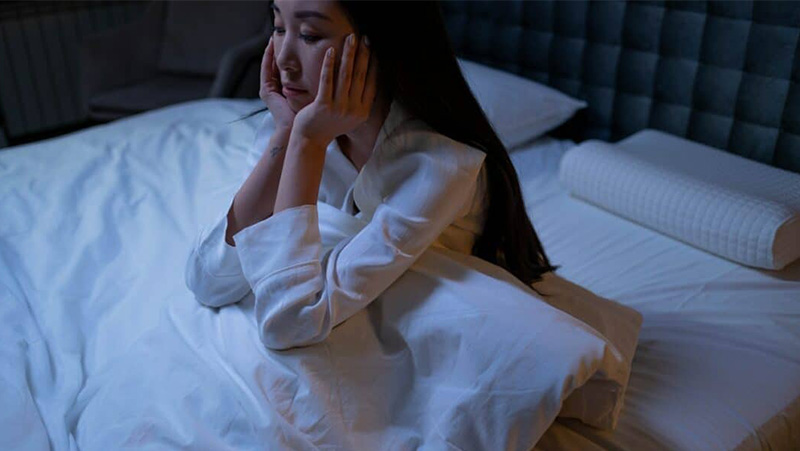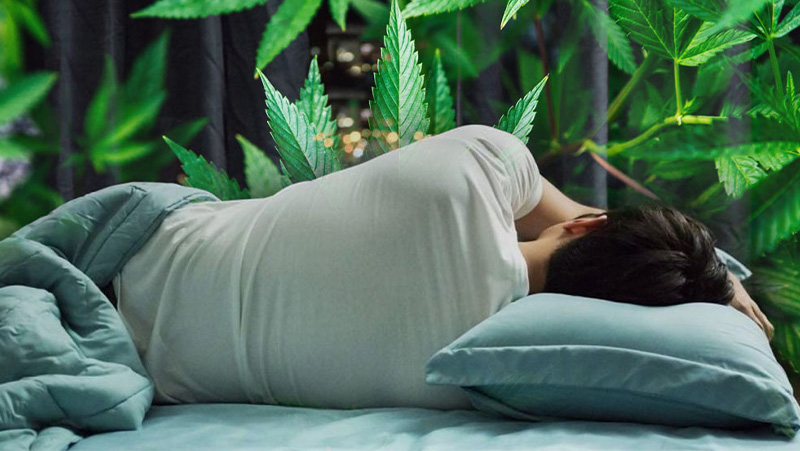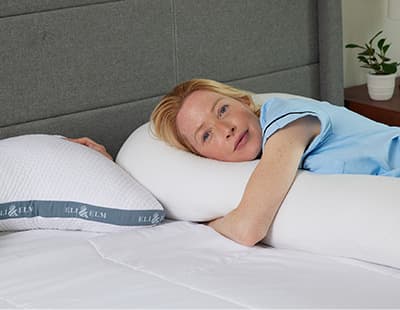Did you know that millions of Americans are struggling to get enough sleep time? Yes, more than one-third of US adults are not getting more than 6 hours of sleep at night. Surprising, right?
People are trying all types of different things to fix their sleeping problems – pills, natural elements, and even bringing change to their lifestyles. Experts suggest taking small steps to resolve such issues. Following a good sleep routine and taking therapies can do the work, but some people are coming up with their own unique ways like using Cannabis or CBD.
Have you ever thought of using these elements to help you sleep? Some say it works, but the fact is, it needs more research to be proven. And what's more important is that cannabis might not be legal everywhere. Therefore it’s better to check out the rules before you consume it to get your best night’s sleep.
Cannabis Effects on Sleep- See What Research Has to Say
Quite a bunch of studies suggest that cannabis might help improve sleep quality by making you fall asleep faster and reduce the number of times you generally wake up at night without any reason. However, on the other hand, there’s another study suggesting that marijuana might interfere with sleep stages like REM and slow-wave sleep. Therefore, using marijuana to solve any kind of health-related issues, including sleeping difficulties has been partially approved by the US Food and Drug Administration (FDA).
In 2017, researchers studied the different aspects of how marijuana affects sleep problems. They found that using it for a shorter term might help you fall asleep faster. But, relying on it completely for a longer period might lead to dependency. The experts also claim that cannabis effects on sleep depend on factors like “how much” and “how often” you are using it.
It is considered that the behavioral pattern of our body's central nervous and immune system with the cannabinoids (chemicals in the cannabis plant) is what makes a positive difference in certain health problems.
Some well-known cannabinoids are THC and CBD.
Tetrahydrocannabinol (THC) is that particular element in cannabis that makes you feel high. Man-made versions of THC are used in treating nausea and vomiting caused by cancer treatment. THC also known as a psychoactive cannabinoid, is majorly responsible for the sensation of being "high."
Cannabidiol (CBD) is a substance found in cannabis known for its anti-inflammatory and anti-seizure properties. Unlike THC, it doesn't make you feel high but instead offers various health benefits.
Cannabis Vs. Sleep Disorders
Even though researchers have an ongoing fifty-fifty debate on how cannabis can help with sleep disorders, it still seems to be quite useful for conditions like the following.
- Insomnia: A lot of people talk to their doctors about using cannabis for insomnia, but the consumer reviews are a bit confusing. Some say it is helpful while others deny this fact.
- However, women trying to fix insomnia during pregnancy should strictly avoid consuming any medicated pills or drugs without consulting with their healthcare provider.
- Restless Leg Syndrome: There is not enough evidence or research to prove that cannabis helps with restless leg syndrome, but some users believe it does. Professionals are curious and are still exploring more to see if cannabis could make a difference for people with this sleep disorder.
- Obstructive Sleep Apnea (OSA): Few researchers claim that cannabis might help patients with OSA, but it might not work too fast.

Cannabis Effects on Other Health Conditions
Cannabis is said to be used for treating various other health issues, such as—
- Multiple sclerosis
- Epilepsy
- After effects of cancer treatment such as nausea and vomiting.
- Sudden weight loss
- Chronic pain
Cannabis Vs. Natural Sleeping Aids
By now we know there isn't much proof about the safety and efficiency of using cannabis as compared to other sleeping aids. However, the FDA has only approved a few synthetic drugs that use THC and CBD products from nature and are generally used for nausea instead of a good night’s sleep.
Instead natural aids, like melatonin, seem to work quite well with insomnia without many side effects.
After Effects and Risks of Taking Cannabis for Sleep
Using cannabis for a shorter period might help you fall asleep faster. But if you take the expert's advice they always recommend that consuming cannabis is not a good idea to rely on. Its usage for a longer period could mess up your sleep schedule and might lead to other issues too.
People who use cannabis regularly for sleep might face the following side effects:
- Becoming entirely dependent on it,
- Increasing the consumption level to get the same results,
- leading to less sleep,
- taking longer to fall asleep day by day, also
- Hampering the sleep quality.
One of the studies even found that taking a lot of THC (a part of cannabis) at night could make you feel dizzy and leave you with bad memories for the next day. However, if you suddenly stop consuming cannabis, it might also mess with your sleep resulting in bizarre dreams.
Cannabis consumption for a longer period could also have other health effects. Some experts say it might shrink a part of your brain and increase the risk of chronic bronchitis. It is also recommended to avoid cannabis if you're pregnant or breastfeeding.
Things to Look Out For When Using Cannabis for Sleep

If you are planning to use cannabis as a sleeping aid, remember, that talking to a doctor is a must. They can guide you about the best supplement based on your requirements and medical history. But, it's also important to watch out for other things as well.
Choosing the Form
There are different forms in which you can consume cannabis for sleep. It can be either smoked, vaporized, eaten, or even taken as a portion under your tongue. Remember, every form has its own pros and cons.
How Fast it Works
Different forms take different amounts of time to work. Smoking gives you almost instant results, however, edibles take a bit longer as they have to go through your digestive system first.
What to Expect
The effects of different forms of cannabis differ from person to person. Remember, it also comes with a few after-effects like nausea, dry mouth, dizziness, or even anxiety therefore do not hesitate to seek medical help when you feel it is required.
ELI&ELM SPECIAL OFFER!
The Bottom Line
In the end, sleeping techniques vary from person to person, and the same goes for cannabis. It's better to avoid such sleeping methods, especially if you've had recent heart issues. If that sounds better, try different sleeping positions, follow a bedtime routine method, a comfortable and cooling pillow by Eli & Elm, or let your doctor help you out.
There's still ample research required on cannabis effect on sleep before declaring the result. It does have a few good medicinal effects like other over-the-counter meds but yes with a few side effects.
Remember, using cannabis for sleep is a temporary solution. To really get that much required good night's sleep, it's important to practice good sleep hygiene and follow tips that support a healthy lifestyle for better sleep.
Sources:
Sleep Foundation: Using Cannabis As A Sleep Aid
Healthline: Can You Use Cannabis to Restore Your Natural Sleep Cycle?
CNN Health: Marijuana may make sleep worse, especially for regular users, study finds





















